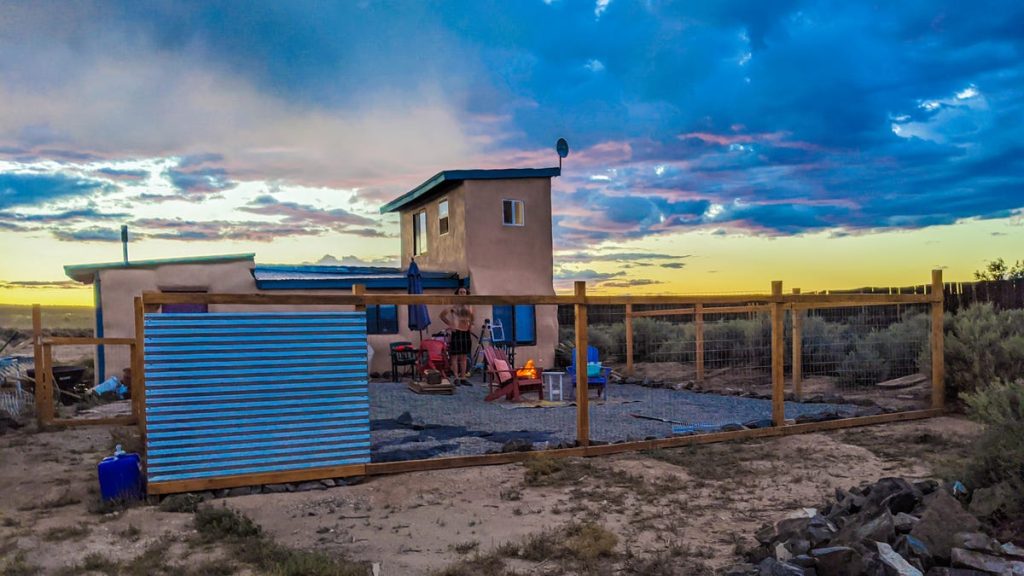Living off the grid requires sourcing everything needed to survive independently, including water. This lifestyle brings empowerment but also challenges when systems fail. In the high desert of northern New Mexico, water is a precious resource. Rain catchment is crucial, with gutters collecting water for storage in tanks. Hauling water from a community well is sometimes necessary, highlighting the value of water in this environment. A decision to conserve water led to opting for a compost toilet over a traditional flush toilet, which requires regular maintenance but is better for the environment. However, challenges arise when the system clogs or leaks.
Despite the difficulties of living off the grid, there are also benefits, such as a successful garden sustained by a gray water system. This garden, flourishing with fruit trees, berries, squash, herbs, and more, is a surprising miracle in a harsh environment. Gray water, recycled from sinks and baths, flows into a system of perforated pipes buried in basins filled with mulch and garden soil. This system has been successful, leading to plans for expansion to further distribute the water’s benefits. By utilizing gray water, the garden provides fresh produce, combating the limitations of the desert environment.
Energy sourcing is another critical aspect of off-grid living, with options like gas generators or wood stoves. However, these traditional methods can be inefficient and environmentally unfriendly. Implementing solar energy systems can simplify the process. A wood pellet stove, powered by solar energy, provides heating for the off-grid home. While reliant on industrially made pellets, which have supply chain issues, this system is cleaner and less labor-intensive than traditional methods. A small propane-based backup system is in place for emergencies, highlighting the need for diverse energy sources.
Moving off the grid offers numerous advantages, including reduced utility bills, a smaller environmental footprint, and increased independence. However, the unexpected benefits of this lifestyle include a deeper understanding of essential systems and their workings. Managing basic needs like water and power provides insight into unseen systems in the world, fostering a sense of responsibility and appreciation for all systems. This newfound knowledge extends to other areas of life, enhancing understanding and appreciation for various systems. Overall, the challenges of off-grid living are offset by the rewards and lessons gained along the way.
In conclusion, living off the grid requires a commitment to sourcing essential resources independently, such as water and energy. Despite the challenges, including water conservation efforts and maintenance of compost toilets, the benefits are significant, such as successful gardening and reduced environmental impact. Implementing solar energy systems and wood pellet stoves offers cleaner and more sustainable alternatives to traditional methods. This lifestyle fosters a deeper understanding of essential systems and promotes a sense of responsibility and appreciation for the environment. Off-grid living provides valuable lessons and rewards that enhance overall well-being and sustainability.


